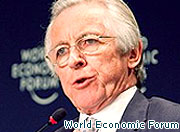Regulations on techniques to create three and four-parent babies could be legally challenged over serious flaws in the proposals, an international law expert has warned.
In a written opinion, Lord Brennan QC said there are “significant doubts” about the legality of the procedures, and highlighted contradictory statements by the Government.
He said: “If the regulations are approved in their current form, they may be open to challenge by way of judicial review.”
Exception
The regulations create an exception to the Human Fertilisation and Embryology Act 2008, which does not permit techniques that involve altering the DNA of an embryo.
Under the regulations, two procedures would be allowed – Maternal Spindle Transfer (MST) and Pro-Nuclear Transfer (PNT).
MST involves swapping the nucleus in a healthy donor egg with the nuclear DNA from the prospective mother – resulting in a child with DNA from three parents.
Genetically modified
PNT creates a child from four different individuals (a chromosomal mother, a chromosomal father, an egg mother and a sperm father).
But in recent months, the Government has claimed that these procedures, also known as mitochondrial donation, do not involve altering DNA, and will not lead to genetically modified babies.
“The problem with this suggestion”, Lord Brennan argued, “is that, if it is correct, there would be no need for the regulations at all, because mitochondrial donation would be allowed under the Act itself. Thus either these regulations are ultra vires [invalid] or they are unnecessary.”
Vote
Parliament is expected to vote on legalising three and four-parent babies in the coming weeks.
The Human Fertilisation and Embryology (Mitochondrial Donation) Regulations 2015 could come into force in October if Parliament approves them.
If legalised, the UK would become the only country in the world to permit the two techniques.
Serious debate
The New Scientist magazine recently changed its stance on three-parent babies, warning that the UK needs to have a “serious debate” about the ethics and safety of three-parent babies.
The magazine previously dismissed ethical concerns, but said now it appears “we may have seriously underestimated the influence that mitochondria have”.

